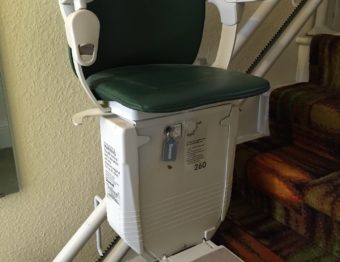
If you are looking for a rewarding career where there will always be work available, then the healthcare sector could be the place for you. The truth is, people will always need medical practitioners, whatever might be happening in the broader financial environment. And by working in this sector, you know that you are making a real difference to people’s lives.
Recession proof
The healthcare and medical field has remained largely recession proof during the economic troubles of the past ten years and has continued to add jobs while practically every other industry has been laying people off. Not so surprising, then, that supply chases demand and a great many people are looking to join the sector.
Of course, this might sound like a great idea, but is it that easy? After all, we all know that doctors need years and years of medical training before they can qualify, and many people do not have the time, money or flexibility to contemplate that.
This is true, but of course, there is more to the overall health care sector than doctors and surgeons. Certain entry level and non-clinical roles have far lower barriers to entry in terms of academic qualifications and might be the perfect fit, particularly if you are considering a sideways step from a related industry and you have some transferable skills.
Let’s take a slightly more in-depth look at some of the training requirements, and at the education options that are open to you.
Non-Clinical Roles
If you want to take the fast track into the healthcare sector, then a non-clinical role as a healthcare assistant could be the perfect step. These are people such as clerical administrators, receptionists and so on. The roles do not necessarily need any medical training whatsoever, and all that is usually required is a high school diploma or GED and some appropriate on the job training or work experience in a related field.
Non-clinical roles are not just restricted to entry-level and clerical positions, however. Like any other industry, the medical profession is a complex business, with professionals in IT, operational management, finance, strategic planning, human resources and all the other functions that you would see in any other business.
If you have built some solid experience in any of these fields, it might be possible to transfer that knowledge into the healthcare sector, and an appropriate degree will put you in good stead. Of course, very few working professionals can afford to take a year out to go back to college, but this is where the flexibility of eLearning can really come into its own, giving you the opportunity to study for an appropriate qualification, such as a health informatics degree online at your own pace.
Entry-Level and Assistant Clinical Roles
These are roles that might have components that are clinical and non clinical. They can be perfect if you want to break into the clinical side, and perhaps ultimately expand your experience and qualifications into full-time clinical work.
Roles like this can be found in a diverse variety of settings, including hospitals, clinics and doctor’s offices. Most of these have a number of medical assistants, who perform a range of roles, from the purely administrative, such as processing patient information and medical history, to more hands-on, performing basic medical tasks like checking blood pressure and taking blood samples. This Philadelphia nursing program is a great place to start gaining the experience you will need.
It is also possible for assistants to specialize, for example in pediatrics, podiatry or chiropractics. It all depends on the level of experience, but the good news for assistants is that this can be gathered over time and through specialist courses that can be fitted around work.
Healthcare specialists
Specialist healthcare providers are doctors, nurses, surgeons, physicians or educators, who have an advanced level of specific training in a sub specialty of medicine. As you can imagine, there are a whole host of such specialties, including cardiology, obstetrics, gastroenterology, neurology and many others.
Jobs in nursing or medical education also fall into this category. Of course, the exact training requirements depend on the area of medicine that you wish to pursue, but typically you will need a bachelor’s degree in order to get into medical school.
From there, you would be likely to pursue a two-year Doctor of Medicine program, followed by additional specialty and fellowship programs in your chosen field.
A rewarding career for life
Whether it is a clerical job behind a reception desk, a management career behind the scenes or a hands-on role in the operating theater, everyone in the medical sector knows they are playing an important role in saving lives.
How many careers can say that, and provide prospects that are practically recession proof?





